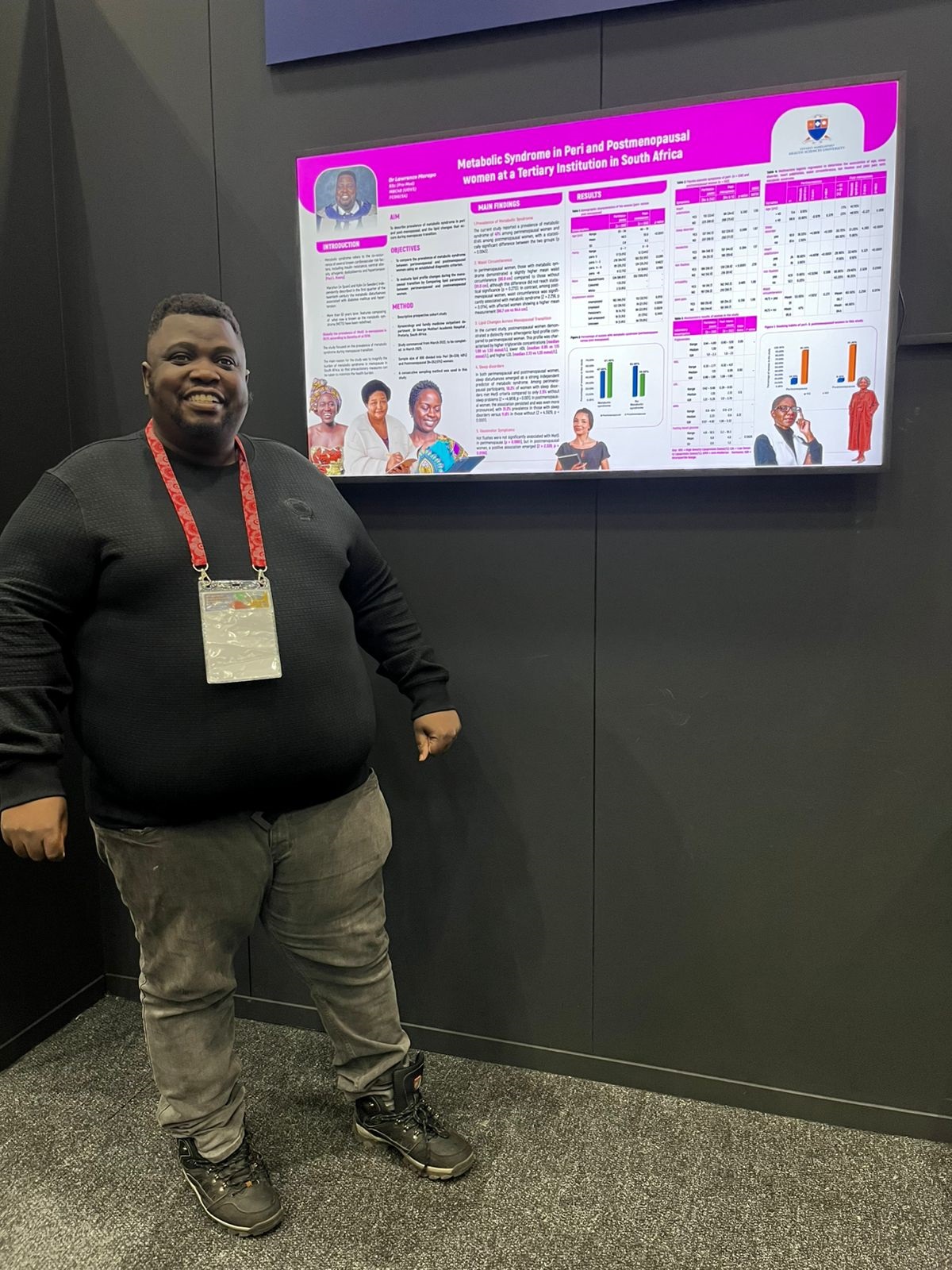A South African researcher has made academic history after his pioneering study on metabolic syndrome in menopausal women was published by the American Journal of Obstetrics and Gynaecology Global Reports (AJOG Global Reports) — the first from Sefako Makgatho Health Sciences University (SMU) to achieve this distinction.
 Lecturer and postgraduate student, Dr Lawrence Marapo, from SMU’s Department of Obstetrics and Gynaecology, led a large-scale investigation examining how menopause influences metabolic syndrome — a cluster of risk factors including obesity, hypertension, and abnormal lipid levels that increase the likelihood of heart disease and diabetes. Conducted at Dr George Mukhari Academic Hospital (DGMAH) between March 2022 and March 2025, the study assessed 690 South African women, making it one of the most extensive of its kind on the continent.
Lecturer and postgraduate student, Dr Lawrence Marapo, from SMU’s Department of Obstetrics and Gynaecology, led a large-scale investigation examining how menopause influences metabolic syndrome — a cluster of risk factors including obesity, hypertension, and abnormal lipid levels that increase the likelihood of heart disease and diabetes. Conducted at Dr George Mukhari Academic Hospital (DGMAH) between March 2022 and March 2025, the study assessed 690 South African women, making it one of the most extensive of its kind on the continent.
The research revealed a stark difference between perimenopausal and postmenopausal women. Nearly half (47%) of perimenopausal women and over 60% (61.4%) of postmenopausal women were found to have metabolic syndrome — a statistically significant result highlighting menopause as a major turning point for women’s health. “The findings confirm that menopause itself is a moderate-to-high risk factor for metabolic syndrome,” Dr Marapo explained. “Postmenopausal women carry a heavier metabolic burden, underscoring the urgent need for targeted healthcare strategies.”
The study also linked sleep disorders, vasomotor symptoms, and dyslipidaemia to higher metabolic risk, with waist circumference and body mass index (BMI) exceeding global risk thresholds in both groups. These findings mirror global data but offer rare insight into the African population, where research on menopausal metabolic health remains limited.
Dr Marapo’s research has attracted significant international recognition. He recently presented the findings at the FIGO 2025 World Congress and has been invited to present in Rome, Italy, at the International Endocrinology and Metabolic Syndrome Congress in December 2025. His growing reputation has also earned him an invitation to serve as a committee member and presenter at the International Conference on Geriatrics and Gerontology in Kuala Lumpur, Malaysia, scheduled for May 2026.
While awaiting the formal marking of his research, Marapo has already completed a PhD research protocol in the same field, signalling his ongoing commitment to improving the understanding and management of menopause-related conditions among African women.
“This milestone not only represents a personal achievement but also a victory for SMU and South African science,” said Marapo. “It shows that locally generated research can shape global conversations on women’s health.”
The study was supervised by Prof Lineo Matsela, with contributions from Prof Olakunle Adewunmi Towobola, Dr Muponisi Ezekiel Chabalala, and other SMU academics. It has been praised for its robust methodology, ethical rigour, and its potential to inform clinical interventions that could reduce cardiovascular and metabolic complications in midlife women.
As menopause becomes an increasingly important focus in public health, Marapo’s work sets a new benchmark for African research excellence — confident, data-driven, and globally relevant.
By Tumelo Moila



